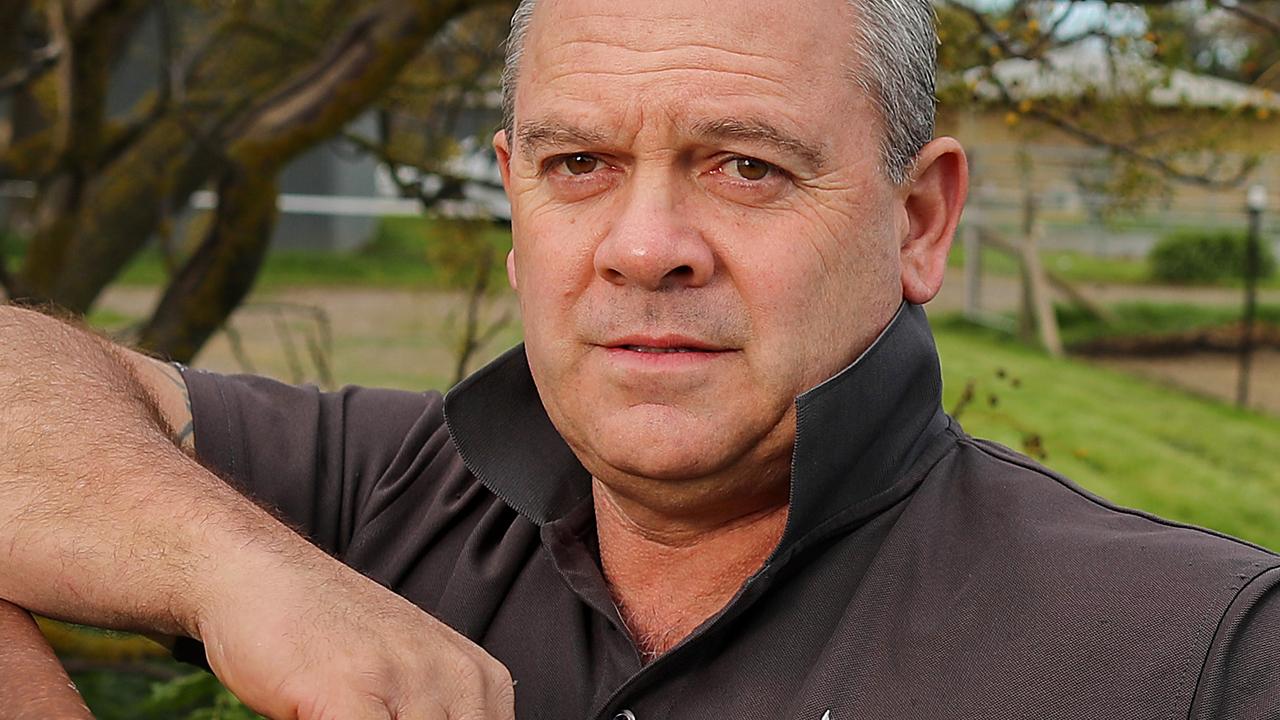When there is war even the survivors are casualties
TODAY marks 100 years since the Armistice, when the thoughts of thousands of Aussies turned to home. But as with most soldiers of war, few returned unscarred, writes Andrew Rule.

Andrew Rule
Don't miss out on the headlines from Andrew Rule. Followed categories will be added to My News.
WHEN the guns finally fell silent on the Western Front exactly 100 years ago today, ending the most terrible conflict in history, it was more a relief than a celebration for the survivors.
One Digger wrote a letter in which he sardonically noted two victories for the day — one over Germany, the other in a football game against another Anzac unit.
The dead were many. The living just wanted to get home. For them, the 11th hour of the 11th day of the 11th month of 1918 meant the ghastly reality of war had ended. Their personal nightmares were just beginning.
For my grandfather, whose name endures on my passport, it was the day he almost died after surviving two years in the lethal business of taking ammunition and supplies along the front line.
The primitive ammunition trucks of the 119th Heavy Battery played battlefield roulette, crawling between shell holes, tempting targets for German gunners.
The truck motors got so cold in the winter of 1917 that the Diggers lit fires under the sumps to warm them enough to let the engines start when they hand-cranked them.
My grandfather never talked about the sheer terror of it, looking back 50 years to the young man he was, a father of three who’d enlisted at 24 because his wife had no brothers to represent a proud, patriotic family.

It was a decision that scarred his life — and almost ended it after the Armistice. The most vivid story of the few he told us a lifetime later was about being chased by French criminals who preyed on Allied troops as they packed war-hardened towns behind the lines when peace arrived.
The predators carried garottes, wicked things of piano wire with a handle each end the better to strangle Diggers and Tommies and Yanks and Canadians and Indians who had survived so many murderous months defending French soil. Crime has no conscience and the suddenly careless soldiers became targets with pockets full of cash and, many of them, bellies full of booze.
The savage irony of this wasn’t lost on my grandfather. But on the night in question he was more worried about survival. Later, he impressed us with his strength and fearlessness — no bull or boar pig, dog or snake stopped him, even in old age — but the threat of being garotted scared him plenty.
READ MORE:
THE ESKY MURDER CARL WILLIAMS GOT AWAY WITH
BIG MONEY, BIGGER AMBITIONS DOMINATE THE CUP
WINX UNDER-BIDDER’S STORY A NIGHTMARE
He was a stumpy, barrel-chested man known to lift a blacksmith’s anvil or the front end of an Army vehicle off the ground, but he was no runner. Luckily, he was also no drunk and so alert enough to hear footsteps behind him as he walked back to camp in the dark. When he hurried, the footsteps got faster. When he ran, so did his pursuers.
“They were gaining on me,” he would tell us. “But I kept going and then I got a second wind and heard them drop behind.”
Maybe the story had a moral: in the face of overwhelming odds: sometimes discretion is the better part of valour. And to keep going, no matter what.
So what else did he tell of the “war to end all wars” — except, of course, that it didn’t end then? Not much. He was one of the many “returned men” who stayed silent.
Once, in the 1960s, a young bulldozer driver was making a mess of clearing some bush, smashing trees and tearing up the ground. The old man came along on his grey “Fergie” tractor. The sight reminded him of things he’d rather have forgotten.
“It’s like the Somme,” he muttered, his mind reaching back to scenes that must have haunted his dreams. The truth was, he’d lost his memory with shell-shock after the war and had been painstakingly “brought back” by his father.

Better writers and historians than this one have described the massive trauma that engulfed that generation in a way their descendants barely understand. Patsy Adam-Smith started her spellbinding account, The Anzacs, with a paragraph that seared into memory:
“We children of the nineteen-twenties and thirties didn’t need to be told by our parents that the angel of death had been abroad throughout the land: we had almost heard the beating of his wings.”
Les Carlyon once wrote: “If you have not read The Anzacs there will always be a part of Australia you will never understand.” He meant it. His definitive works on the Great War tapped the national sentiment and shared tragedy that Adam-Smith had divined.
Another historian, Bill Gammage, spoke in 1994 of “dreams abandoned, lives without purpose, women without husbands, families without family life, one long national funeral for a generation and more after 1918.”
About 180,000 Australians had come home by the end of 1919, my grandfather among them. They left behind 61,700 of their comrades under crude wooden crosses that preceded the orderly rows of pale headstones which still bring tears to a visitor’s eyes.
The dead and the “missing” were buried or pulverised to dust in Gallipoli and Palestine but mostly in a tiny part of northern France and Belgium stretching from Villers-Brettoneux to Passchendaele. About half the 324,000 men who served overseas had been wounded, the highest casualty rate in the British Empire forces.
The arithmetic is chilling: only a quarter of the 30,000 who rushed to enlist when war broke out in 1914 had survived to see its end.
Carlyon writes: “Many men returned broken and bitter; others turned drunk and violent.” Most didn’t want to talk about where they had been, what they had seen or done.
My grandfather was one of them. Once, when I was very young, he showed me how to roll under a wire fence the way they’d taught him to roll under barbed wire entanglements in the Somme.
When he died, peacefully enough, I was 13. Too young, to my lasting regret, to have asked him questions he might have answered if he had stayed around a couple more years. It never occurs to the young that the old won’t live forever.
The last time I saw him, I was preoccupied with French homework. To my amazement, he looked at me and spoke a few sentences of fluent French, a leftover from the far-off conflict that had begun with cavalry and bayonet charges and had ended with tanks and fighter planes, the first truly industrial-scale war.
We did not speak of it but you knew instinctively that the spectre of war never quite left him. He would sing sad songs to himself, a distant look in his eyes. And he was one of the lucky ones.
On this 11th day of the 11th month of the 100th year, we should remember them.



